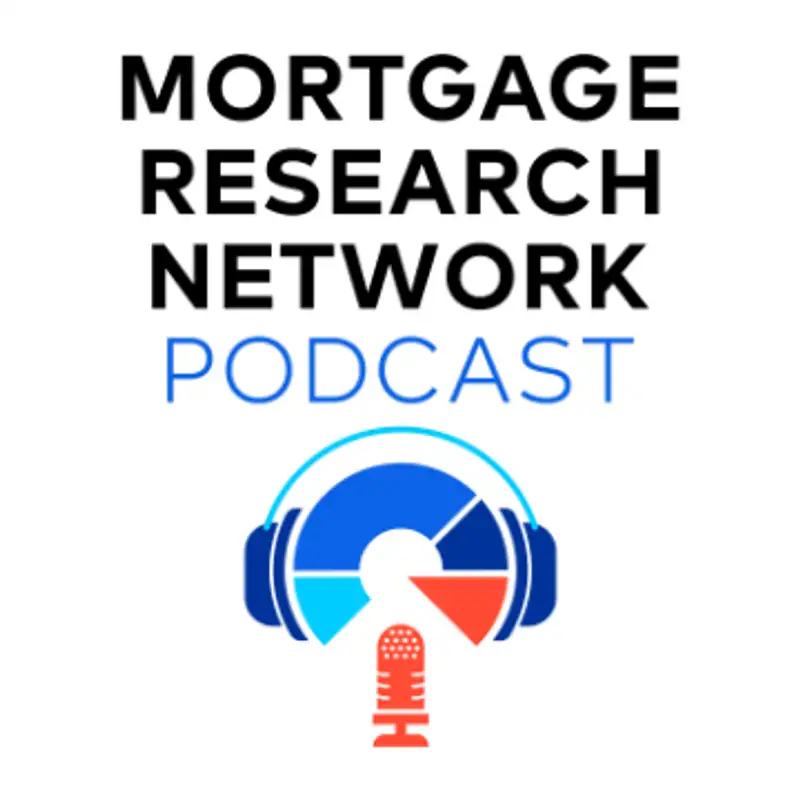Live in One, Rent the Rest: House Hacking with 3.5% Down
Welcome to the Mortgage Research Network Podcast. Just a note that this podcast audio is AI-generated but based on content that was produced by people. And your hosts, Tim and Craig, are real. Without further ado, let's get into today's topic.
I'm your host, Tim Lucas, editor of MortgageResearch.com and a former mortgage professional, and with me is Craig Berry, a mortgage originator with 25 years experience. Craig, imagine turning your first home purchase into a real estate empire starting with just $14,000 down on a $400,000 property. That's exactly what's happening with this strategy called house hacking.
That's really interesting because most people think you need hundreds of thousands to get started in real estate investing.
Well, that's the fascinating part. the rules have completely changed. You can now buy a multi-family property, like a duplex, triplex, or fourplex, live in one unit, and rent out the others with just 3.5% down using an FHA loan. And in high-cost areas like California, you could potentially qualify for over $2 million in financing.
Hold on. So you're saying someone could essentially become a landlord while solving their own housing needs at the same time?
Exactly right, and here's where it gets really interesting. You only need to live there for 12 months. After that, you could theoretically move out and do it all over again. Some investors have built substantial portfolios this way, starting with almost nothing.
You know what makes me nervous though. Dealing with tenants living right next door. That seems like it could get complicated.
Well, that's a valid concern, and there are definitely challenges. You're basically taking on two roles at once, homeowner and landlord. But being on-site actually gives you advantages. Tenants tend to take better care of the property when they know the owner is right there.
So what kind of financing options are we really talking about here? I mean, beyond that FHA loan you mentioned.
Oh man, this is where it gets good. Veterans can get VA loans with literally zero down payment. Fannie Mae and Freddie Mac recently changed their rules to allow 5% down on multi-family properties. That's down from 15-25% previously. And they'll let you use future rental income to qualify for the loan, even if you've never been a landlord before.
That seems almost too good to be true. There must be some catch.
Well, they do build in some safeguards. They only count 75% of potential rental income toward qualifying income. So if a unit would rent for $1,500, they count $1,125. But here's something most people don't know. There are down payment assistance programs that could help get you started.
So you could potentially get into a property with even less than that 3.5% down?
Exactly, and if you have family members willing to help, they can gift you the entire down payment on an FHA loan. Plus, these loans come with some serious protections. They're non-recourse, which means if everything goes wrong, the lender can only take the property, not your other assets. Buying a commercial property, though, usually means puttin personal assets at risk.
That's actually really reassuring. But what about the long-term benefits?
That's where this strategy really shines. Your mortgage payment stays fixed, but rents typically go up with inflation. So your cash flow improves year after year. Plus, you get tax benefits like depreciation on the rental portion and can deduct maintenance expenses.
You know what's really interesting about this? It's like getting paid to learn how to be a real estate investor.
That's actually a perfect way to put it. And here's something else to consider. In many markets, a fourplex can generate significantly more cash flow than a single-family rental. We're talking potential returns that could cover your entire housing cost and then some.
So is it easy to find one of these properties?
Well, a gotcha about this strategy is it may be hard to get an accepted offer on a multifamily property as a first-time buyer. In hot rental markets, investors will swoop in with all-cash offers to buy homes with multiple units. But just keep trying and eventually you'll find a property without a lot of competition.
And what about risks?
Well, the learning curve can be steep. You need to understand landlord-tenant laws, proper screening procedures, and maintenance issues. But you can minimize those risks by getting a good insurance policy, using a solid lease agreement, and thoroughly vetting tenants. It's really about being prepared and treating it like a business from day one.
That makes a lot of sense. It's not just about buying property, it's about building a sustainable system.
Exactly, and that's why this strategy has become so popular, especially with younger buyers. You're essentially leveraging other people's money, the bank's financing and your tenants' rent payments, to build long-term wealth. It's not easy, but it's one of the few proven paths to building significant real estate holdings without needing a huge amount of capital upfront.
That's about all the time we have for this topic, but we go into even more detail on the site. To learn more, type owner occupied multifamily into the search bar at Mortgage research.com. We'll see you next time on the Mortgage Research Network Podcast.
